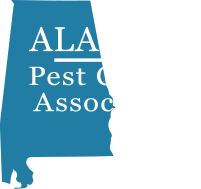Have you been noticing brown patches appearing in your lawn? Does your grass look like someone else has been mowing it too short? Are birds suddenly flocking to your yard? These are all signs that you have an armyworm infestation around your home in Alabama.
Armyworms are moth caterpillars that have an appetite for grass, leading them to wreak havoc on local lawns. Left untreated, armyworms can completely destroy your beautiful lawn. Continue reading if you’d like to learn how to identify armyworms and how to keep them from ruining your nice green grass.
How to Identify Armyworms
When you begin noticing signs of lawn damage, you should inspect more carefully to see if you can find the culprits wriggling around on the soil between blades of grass. There are a few different species of armyworms, but they generally grow to be one or two inches long, with bodies that may be primarily green, brown, gray or black in color. Armyworms usually have dark and light stripes running down their bodies, which distinguishes them from many other caterpillar species.
If you’ve seen lawn damage but haven’t had any luck finding armyworms by day, try again at night. Armyworms are nocturnal feeders that tend to hide when the sun is up, but scanning your lawn with a flashlight by night can help you find these voracious lawn pests. Another way to find elusive armyworms is to pour soapy water over an area where you suspect their presence. This will bring them crawling to the surface of the soil.
How to Remove Armyworms from Your Lawn
If armyworms have infested the lawn of your Alabama home, you can try a few different methods to remove the pests before they cause further destruction. To identify what method will work best for your armyworm infestation, begin by determining the extent and severity of your infestation. In cases where armyworms have only just begun to enter your lawn, you may be able to pluck out the caterpillars by hand and dispose of them in a bucket of soapy water.
For more serious armyworm infestations, two main options are available to you: eco-friendly control and chemical control. If you’d prefer to use environmentally conscious means of armyworm control, you have a few options available. Bacillus thuringiensis (or just “Bt”) and neem oil are two types of natural insecticides that can prove effective in removing armyworms from your Alabama lawn. Spraying these insecticides on areas where armyworms have been active can exterminate the caterpillars without harming other native species. Another option is to sprinkle diatomaceous earth in your lawn; this powdery substance will kill armyworms on contact.
There are a few types of chemical insecticides which can be relied on to exterminate armyworms in your lawn. While these methods tend to be very effective, they have the disadvantage of sometimes harming beneficial local wildlife species. Types of insecticides that prove effective against armyworms are those that use bifenthrin, carbaryl or permethrin. If you’re nervous about using chemical products on your lawn and you want to make sure your armyworm problem goes away for good, hire a professional lawn pest control company in Alabama to apply the treatments to your lawn.
Preventing Armyworm Infestations in Alabama
Preventing armyworms from invading your Alabama lawn in the first place will always prove easier than getting rid of the lawn pests once they’re established. One of the best ways to keep armyworms out of your lawn is to keep up with your lawn care. A lawn that is regularly mowed, watered, and fertilized is less vulnerable to armyworm infestations than a lawn that is poorly upkept. You may also want to avoid outdoor lights in your yard, since this can attract the moths that lay armyworm eggs on your property.
Treating your lawn with Bt, neem oil or granular insecticides is a good way to prevent armyworm invasions. For the best results, consider hiring a licensed lawn pest control company in Alabama to provide armyworm prevention treatments for your yard. If you’re looking for professional help with your armyworm problem, contact SafeSpray Pest Control today!








